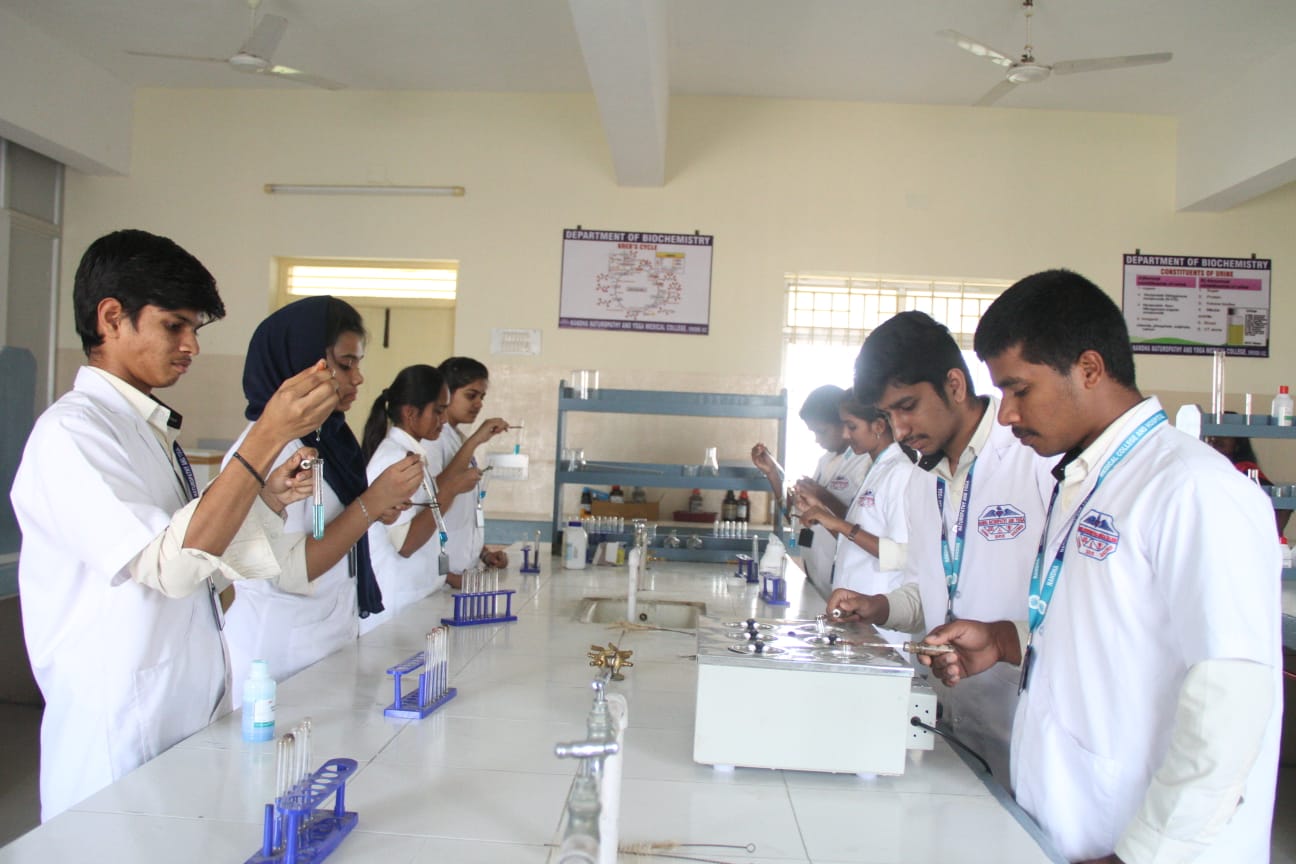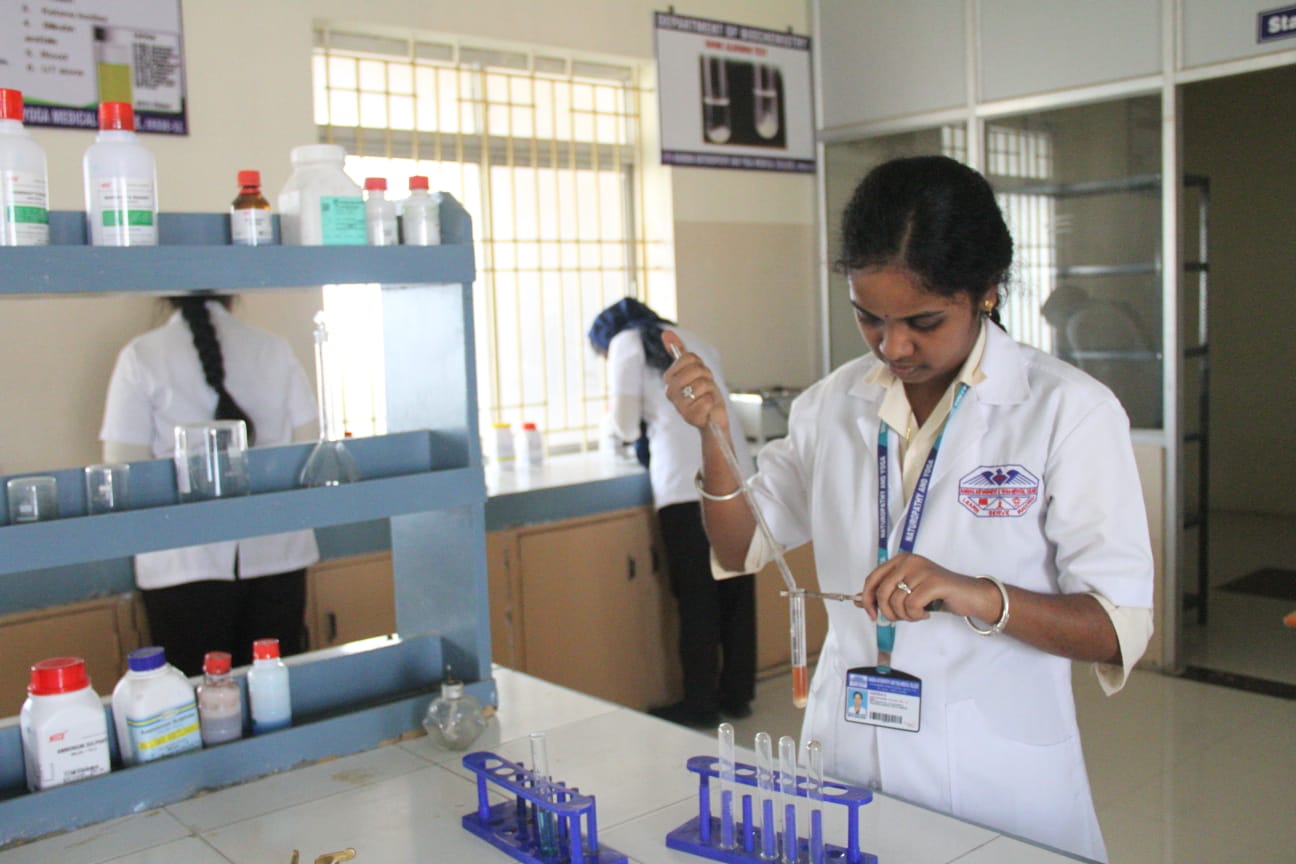DEPARTMENT OF BIO CHEMISTRY
This course is designed for medical students having their first exposure to biochemistry. Upon completion of the course the students have an admirable grasp of the metabolic basis of disease. In order to understand the altered state, it is first necessary to study the normal pathways of metabolism. By teaching biochemistry through a disease oriented approach the students have a greater appreciation for the role of biochemistry in disease and the role of biochemistry in clinical treatments. Lecture will address concepts dealing with proteins, enzymes, metabolism, and biosynthesis.
Course objectives
- To explain biochemical basis of different organs functions, metabolic processes and homeostasis
- To give the students insight into appreciating how understanding of digestion and absorption of the main dietary categories like carbohydrate, lipid, and protein in the human body and the key metabolic processes occurring in the human body, could contribute to the understanding and explanation of pathological phenomena.
- To make students familiar with various control and metabolic regulation and integrating mechanisms of diverse biochemical events in different metabolic processes, and to understand normal and abnormal human metabolism.
- Explain the hormonal, non-hormonal and genetic controls of these major metabolic pathways and correlate the impact of any abnormality to the medical status
- Identify the interactions between the major metabolic pathways and the control of these pathways under different physiological conditions
- Define the membrane biochemistry and its role in biochemical regulation and understand the concept of different signal transduction.
- To make students familiar with function and mode of action of hormones in health and disease and understand their roles in controlling various metabolic pathways.
- To enable the student to identify the concept of signal transduction and signaling molecules giving an illustrated models for better understanding the molecular basics for many diseases .
- Recognize the different biochemical tests and how to select the biochemical tests appropriate to the diagnosis and management of the disease.
BIOCHEMISTRY LAB
 |
 |







